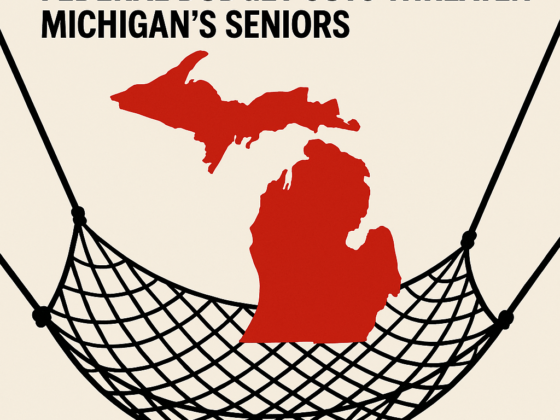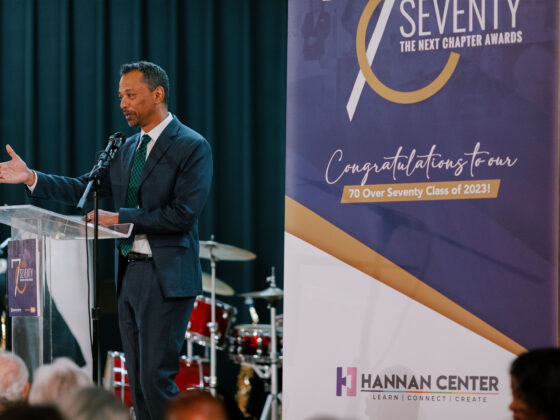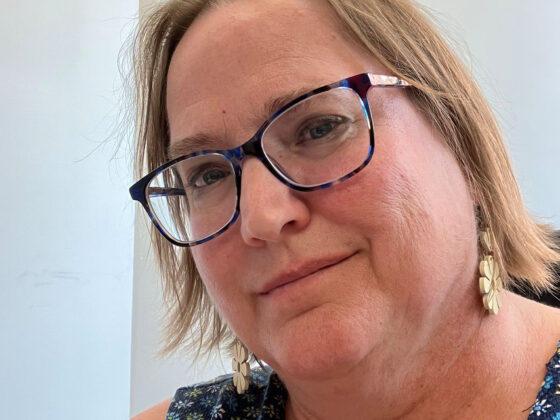by Vincent Tilford, Executive Director
As a parent of an eleven-year-old, I’m his preferred target when it comes to jokes about getting older. Recently while watching my attempts to learn a dance that had gone viral he said, “You’re too old to learn how to whip and nae-nae. You look creepy. I’ll never be able to un-see this.”
While he may be commenting more on my dancing abilities than my age, he also loves making wisecracks about age that come at my expense, from me needing to eat softer foods to my “one-pack” stomach ab. We laugh at his attempts at humor and I will even admit that he can be funny sometimes. Unfortunately, as harmless as this banter may seem, I have to wonder if I’m encouraging ageist beliefs and ideas in him.
These concerns may seem like unnecessary political correctness; however, ageism, a bias against older people because of their age, has real consequences. Research has shown that seniors who experience age discrimination are more prone to mental and physical health declines. Given that the fastest growing age demographic is the population that’s over the age of 65, more people in the generations below them will have to shoulder the emotional, financial and physical responsibilities for caring for older loved ones. Negative stereotyping increases this burden; however, the reverse is also true. Older adults who are valued, respected, and empowered, live longer, healthier lives. Therefore, it’s in our best interests to figure out ways to combat ageism.
Most of us learn our “isms” when we’re children. However, the difference between “ageism” and the other “isms” is that it doesn’t carry the societal penalty that’s associated with “sexism” and “racism.” We rarely challenge our ageist attitudes let alone another’s. As a result, these opinions become beliefs, and these beliefs become our filters for how we see and treat people of a certain age, ourselves included.
Take driving as an example. According to a Consumers Reports’ article, drivers over the age of eighty have accidents at a rate that is five and a half times greater than middle-aged drivers. For some, the knee-jerk reaction is to take away a senior’s car key. After all, why take the risk? However, the same article points out that teenagers have an accident rate that is nine times higher! Do we stop them from driving or do we create solutions to help them become safer drivers? Ageism is insidious, and when we gift wrap it with benign intentions, we disempower the people that we love.
I have a friend whose father is in his eighties. A hard working man, his dad, works three jobs. In my friend’s opinion, his dad needs to stop working. He planned a trip to visit his father for the purpose of convincing him to retire. I asked, “Why? Is he ill?” My friend said no. “Does he need the money?” Again, the answer was no. His dad would have three pensions in addition to social security. “Why stop him from working then?” I asked.
“He’s too old to be working. He needs to stop and enjoy life before he kills himself!” he replied. Since I’ve never met anyone who has managed to get out of life alive, I urged him to ask his dad about what he wanted. It could be that his father is happy working. Maybe, it gives him something to look forward to each day. Without work or something else to take its place, he might lose his sense of purpose and reasons to get up every morning. All of us give our talents and time to our family, church, community and work. It’s how we achieve meaning in life, and it doesn’t stop once we’ve hit some magical number.
Satchel Paige, a famous baseball player who was 42 years-old when he entered the major leagues, was asked after a game about being an older rookie. His reply was, “How old would you be if you didn’t know how old you was?”
What if we looked at age as nothing more than a number? What if instead, when we looked at a person, we considered experience, talent, motivation, skills, and other gifts? How old would they be if we didn’t know how old they were? People over age 65 are as diverse as any other demographic and their skills and years of experience don’t vanish when they hit retirement age.
If we want to eliminate ageism, younger adults must recognize the value and appreciate the skills and experiences that older adults can offer. Those of us who are older must also demand respect, and quiet the chatter in our minds that says that we are too old to do something. It may take us a little longer, and we may do it differently or not as well, but as long as we are breathing, we have much to share.
That’s the lesson I want to teach my children when they watch me whip, whip and watch me nae nae.



